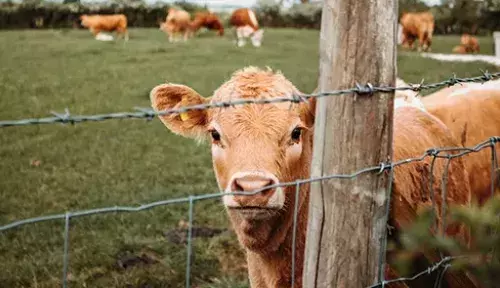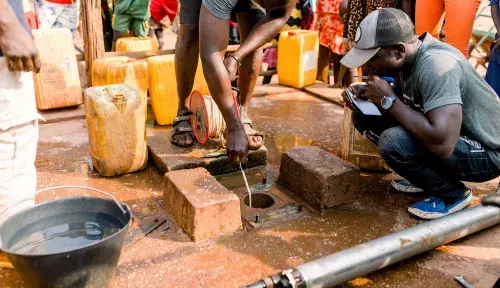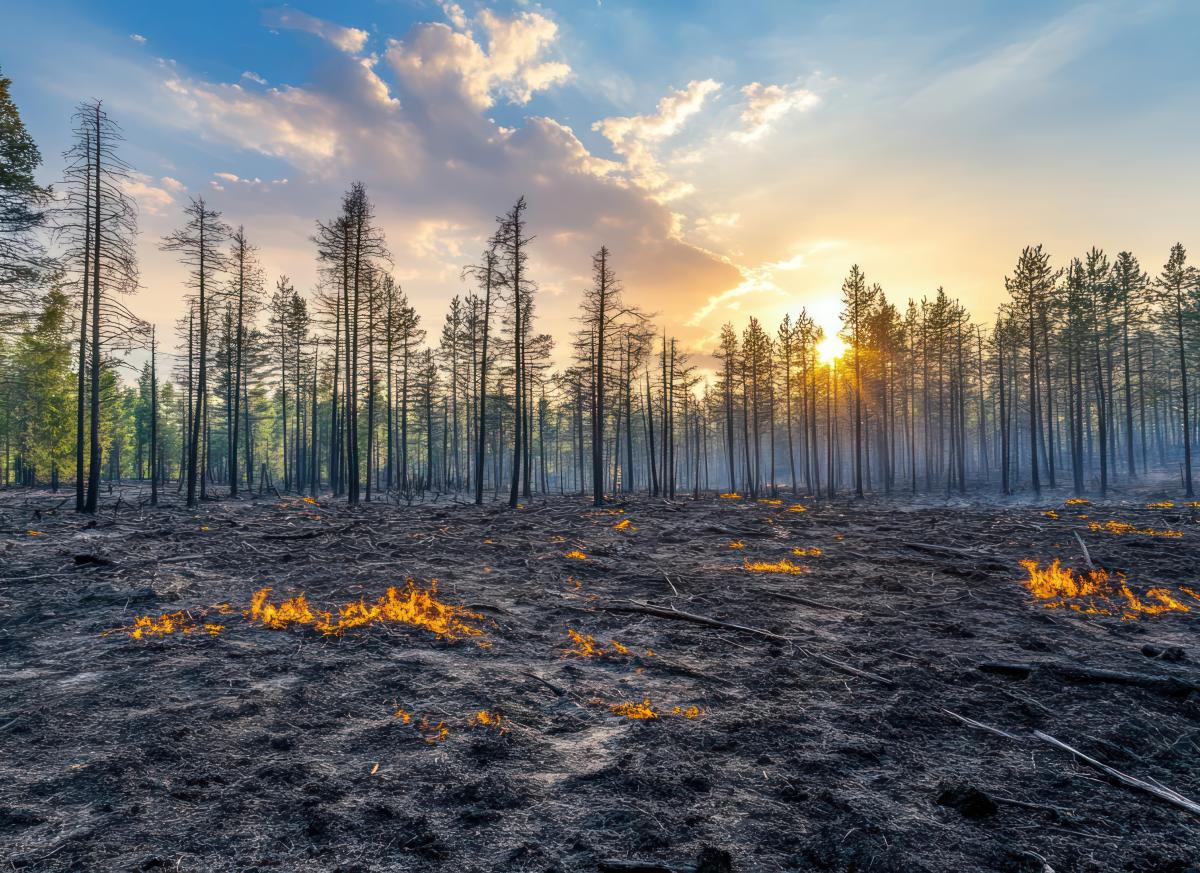The Oxford Principles for Responsible Engagement with Article 6
 The new ‘Oxford Principles for Responsible Engagement with Article 6’ – developed by a wide range of researchers and practitioners from Oxford and beyond – provide essential guidance and guardrails to enable this international framework to be used in a responsible manner.
The new ‘Oxford Principles for Responsible Engagement with Article 6’ – developed by a wide range of researchers and practitioners from Oxford and beyond – provide essential guidance and guardrails to enable this international framework to be used in a responsible manner.
Our teaching
We equip the next generation through undergraduate and graduate teaching in the world number one ranked School of Geography and the Environment.
Our executive education programmes empower business leaders and policy makers to take action.
Introduction to the Smith School
The Oxford Smith School was established to bring business and enterprise into the climate change and sustainability conversation. Our vision of a Net Zero future is supported by our research, teaching and partnerships. But, at the heart of the Smith School, there are people - people that drive forward the conversations and bring a fresh perspective to the table.
Video transcript
We find ourselves now at these critical points in human history we are pushing up against the limits of the planet in a way that is by definition not sustainable.
The decisions that we make in the next decade are going to be incredibly important to address the ecological, but also the social crisis that we face.
If we are to get to Net Zero and sustainable development and reorder the relationship between nature, society and economies, business is an absolutely critical component. it's the cause of, but also solution to this mess that we find ourselves in.
The idea behind a School of Enterprise and the Environment is helping private enterprise and public enterprise identify the things that they have to change to address the climate change problem. Basically, it is an industrial revolution and we're trying to advise on that revolution.
The school is a bit of a haven for those of us who share this passion and this interest, and who want to apply the best and the most rigorous tools of academic inquiry to unearth new knowledge that can help us.
So, we are always asking: what's the application of those research? how can we innovate? how can we change the system? how can we do better? what are the tools that we need? As well as ensuring that our research gets out of the university and into the hands and minds of the people you need to use it.
So, we have people working in water, in energy, in finance, in law, in food and infrastructure all of which has this collective focus on thinking about enterprises and sustainable development.
The Smith School's work is extremely important because it is striving to address the climate change issues, the environmental challenges from an interdisciplinary perspective. You can really make a change if you drive these ideas into a practical reality. No single discipline can solve these problems alone, so we need to collaborate.
So for example the Smith School’s work on water security in some of the most fragile areas of the planet has already helped millions of people and is on course to help possibly even 100 million people. And then of course our students are critical in this.
We launched this new masters in Sustainability, Enterprise and Environment which tries to be realistic rather than the idealistic about the world and we give students the broad knowledge base and skills that they need to go out into the world and lead impactful change.
It takes a systems level view of really looking at the complex economic ecological and social systems that we operate in.
All the research in the world is only effective if it's then implemented in terms of what people do, how they think about things, are they invest.
What we're trying to do is to define best practice, to define the future of sustainable finance and investment. But we’re also trying to translate that, and so we spend a lot of time working with practitioners to turn theory into practice.
Our links span industry, government, public enterprise, policymakers, non-governmental organizations. so, we can really take our research to the people who need to adopt it.
I had a career in finance it was a lucrative career, but I never felt anything at the end of the day. what I do now I feel something.
Research is meant to change lives, seeing the impact of research translating into the policy documents that's very exciting to me.
Honestly, I think this is the challenge of our time, we need some really committed people who can be inspired and in turn can inspire others, and that's the central we're trying to create.
So, if you're listening to this and you think you have something to contribute to the Smith School, please let us know
Our research
Our ground-breaking fundamental research drives real-world change, working with partners in public and private activity, business, markets and government.
The SSEE is home to the Oxford Sustainable Finance Group and Oxford Sustainable Law Programme.
OUR CORE DISCIPLINES
Our impact areas
World Forum on Enterprise & the Environment
Bridging Nature, Climate and Finance.
The World Forum is Oxford University's annual high-level, high-impact flagship event on enterprise and the environment.
The latest World Forum took place in October 2024, on the theme of Bridging Nature, Climate and Finance.
The Smith School of Enterprise and the Environment brought together world leaders in policy, business and academia to embrace bold ideas, identify priority solutions to get their firms, industries and countries to net zero and investigate how real progress can be made.
News & insights
A 7-Step guide to help companies deliver a just transition
Alexis McGivern and Dr Matilda Becker set out 7 steps companies can follow to help themselves, and the world, transition to a sustainable future in a way that is fair and equitable.
Breaking barriers: two Smith School alumni discuss their path to Oxford
Smith School MSc alumni Aurona Sarker and Lewis Ireland discuss how they overcame hardships and social barriers to study our MSc in Sustainability, Enterprise and the Environment.
Leading UK scientists urge Prime Minister to place nature at the centre of economic and climate policy
On 9 June 2025, a group of over 35 senior UK academics, coordinated by NbSI Director, Nathalie Seddon—drawn from ecology, economics, public health and the social sciences—delivered an open letter to the Prime Minister.
In the news
The Most Efficient Way to Run Your AC During a Heat Wave
Parts of America are currently suffering from a stifling heatwave. Dr Radhika Khosla raised the issue of overreliance on air conditioning in an article for Time Magazine. "Air conditioners are not the most climate friendly solutions because they're extremely energy intensive... they're so energy guzzling, they place quite a large strain on the [fossil fuel] electricity grid," she said.
India Is Using AI and Satellites to Map Urban Heat Vulnerability Down to the Building Level
While temperatures rise across the world, Dr Radhika Khosla warns that many heat action plans implemented by governments are missing "hyperlocal targeted" responses to heat risks. “Often where the actions are taken may not be where the most vulnerable are," she explained.
Global Banks Increase Fossil-Fuel Funding as Climate Pledges Crumble
A new report shows that banks poured nearly $900 billion into financing coal, oil and gas projects in 2024. Dr Ben Caldecott commented: "Currently, far too much financing is provided to companies with no intention of ever decarbonizing, and with plans for new capex unmoored from the reality of the energy transition,”













